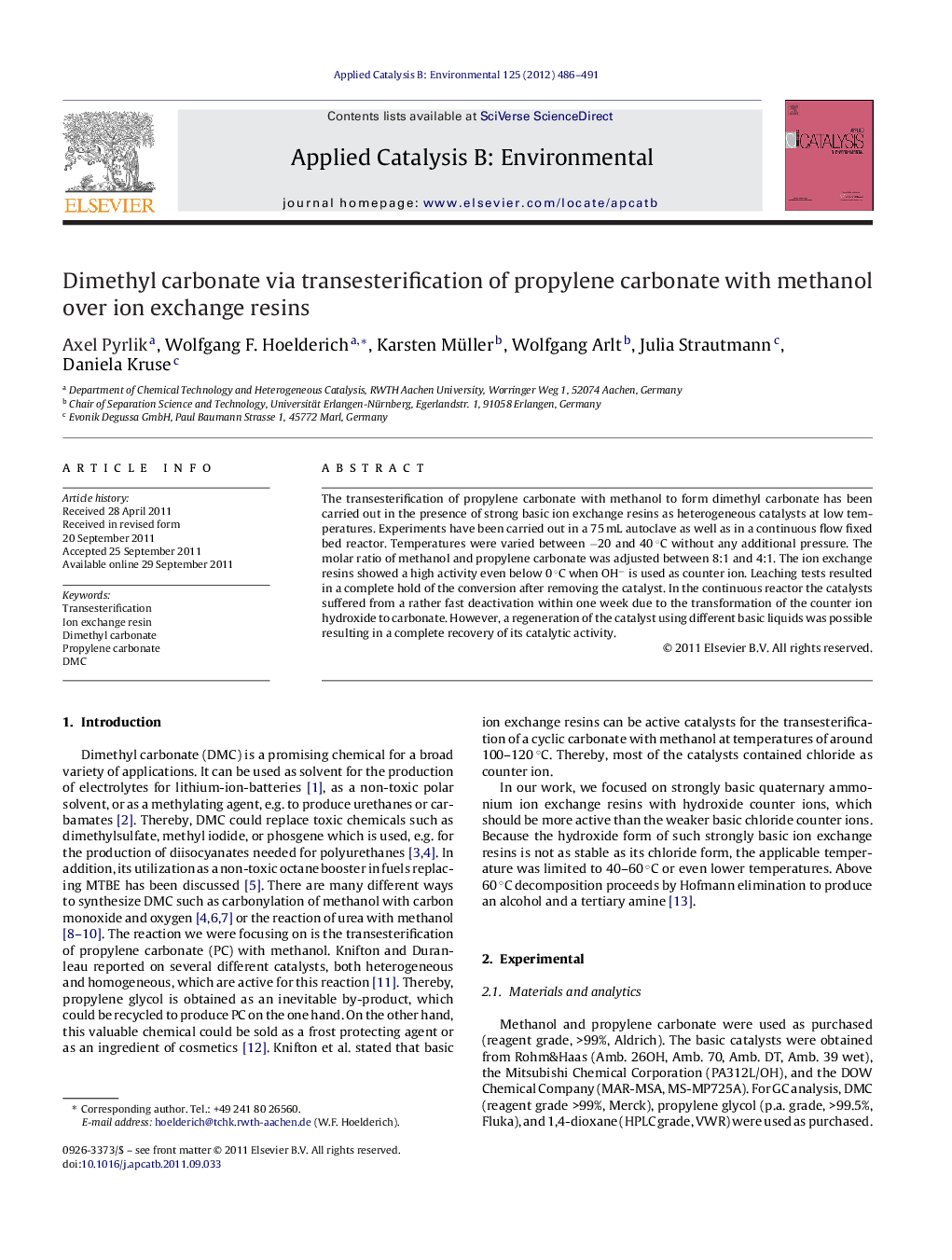| Article ID | Journal | Published Year | Pages | File Type |
|---|---|---|---|---|
| 46102 | Applied Catalysis B: Environmental | 2012 | 6 Pages |
The transesterification of propylene carbonate with methanol to form dimethyl carbonate has been carried out in the presence of strong basic ion exchange resins as heterogeneous catalysts at low temperatures. Experiments have been carried out in a 75 mL autoclave as well as in a continuous flow fixed bed reactor. Temperatures were varied between −20 and 40 °C without any additional pressure. The molar ratio of methanol and propylene carbonate was adjusted between 8:1 and 4:1. The ion exchange resins showed a high activity even below 0 °C when OH− is used as counter ion. Leaching tests resulted in a complete hold of the conversion after removing the catalyst. In the continuous reactor the catalysts suffered from a rather fast deactivation within one week due to the transformation of the counter ion hydroxide to carbonate. However, a regeneration of the catalyst using different basic liquids was possible resulting in a complete recovery of its catalytic activity.
Graphical abstractFigure optionsDownload full-size imageDownload as PowerPoint slideHighlights► We study the catalytic effect of strongly basic ion exchange resins. ► The transesterification is conducted batch-wise and in a continuous flow reactor. ► The catalyst is very active in the beginning but deactivates within one week. ► Washing of the catalyst with diluted bases result in complete regeneration.
